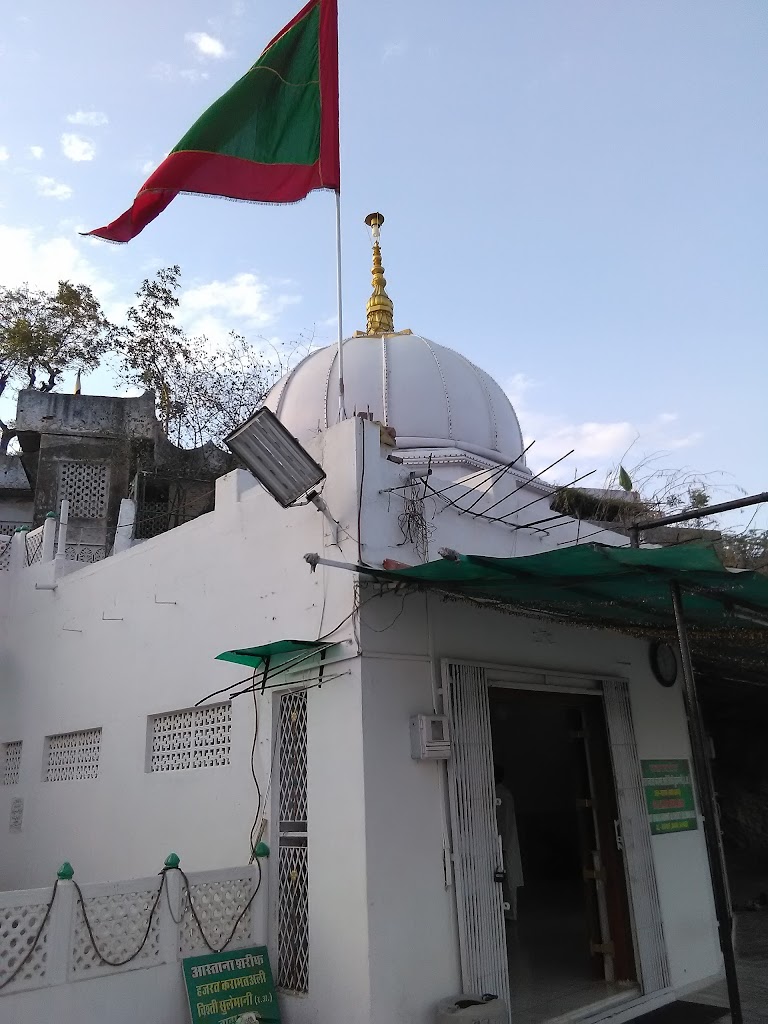
Hazrat Khwaja Karamat Ali Chishty Sulemani
Hazrat Khwaja Karamat Ali Chishty Sulemani (Baba Saheb) Mazar Sharif, Ajmer, Rajasthan: A Sanctum of Devotion and Legacy Located in the spiritual heart of Rajasthan, the Hazrat Khwaja Karamat Ali Chishty Sulemani (Baba Saheb) Mazar Sharif in Ajmer stands as a symbol of profound faith and devotion. Bus Station: Ajmer Bus Stand, about 2-3 kilometers from the mazar. Railway Station: Ajmer Junction Railway Station, located approximately 3 kilometers away. Airport: Kishangarh Airport, situated around 30 kilometers from Ajmer.
Located in the spiritual heart of Rajasthan, the Hazrat Khwaja Karamat Ali Chishty Sulemani (Baba Saheb) Mazar Sharif in Ajmer stands as a symbol of profound faith and devotion. This shrine, dedicated to the revered Sufi saint, is a beacon for pilgrims and tourists seeking spiritual solace and inspiration. Architectural Features The structure of the mazar sharif exudes simplicity yet reflects profound reverence. Its whitewashed walls and minimalist design are a hallmark of spiritual sanctity. The dome, adorned with a golden finial, stands majestically against the blue sky, signifying divine connection. A fluttering green and red flag atop a tall pole marks the sanctity of the space, visible from afar. The entrance is framed by clean, geometric patterns, with ventilation panels that allow natural light and air into the shrine, enhancing its serene atmosphere. The shrine’s clean white interior reflects purity and humility, with visitors experiencing a deep sense of calm as they enter. Modest decorations and inscriptions blend seamlessly with the serene atmosphere of the dargah. Historical Significance Hazrat Khwaja Karamat Ali Chishty Sulemani (Baba Saheb) was a spiritual guide who dedicated his life to spreading love, peace, and harmony, key tenets of the Chishti Sufi order. The mazar is a site of immense historical and spiritual importance, attracting devotees who come to pay their respects and seek blessings. This mazar is a testament to the enduring legacy of Sufism in Rajasthan, emphasizing inclusivity and devotion. The Hazrat Khwaja Karamat Ali Chishty Sulemani (Baba Saheb) Mazar Sharif is not just a spiritual retreat but also a monument to the timeless values of love and unity that Sufism embodies. The mazar's unassuming yet elegant architecture and its spiritual resonance make it a cherished destination for pilgrims and tourists alike. Visitors leave with a sense of tranquility, enriched by the spiritual legacy of Baba Saheb, whose teachings continue to inspire countless devotees.

